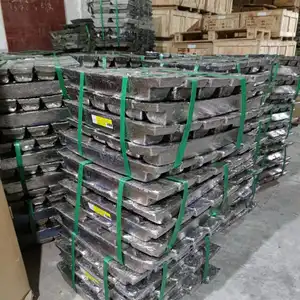
Factory's Spot Lead Ingots Contain Lead With Purity Of 99.994%. Counter Weight Automobile Machinery Industry Lead Ingots


Tin Wire Tin Solder Wire Price Silver Lead Free Sn99.3/Cu0.7 08mm Tin Solder Wire Silver Solder












Tin ingots, a staple in various industrial applications, serve as a fundamental material in manufacturing and production processes. These ingots are solid blocks of tin that have been cast into standardized shapes for easy handling, storage, and integration into production lines. Tin, known for its malleability and corrosion resistance, is a crucial resource for sectors ranging from electronics to food packaging.
The versatility of tin ingots is evident in their various forms and sizes, tailored to meet the specific needs of different industries. Commonly, these ingots come in slabs or bars, making them suitable for further processing like rolling, extrusion, or alloying. The adaptability of tin allows it to be alloyed with other metals to enhance characteristics such as strength and melting point, resulting in diverse applications.
Tin ingots are integral in numerous applications. In the electronics industry, tin's excellent solderability makes it a primary component in solder alloys for circuit board assembly. The packaging sector utilizes tin for coating materials, providing a non-toxic, corrosion-resistant layer to protect food products. Additionally, tin-based alloys are employed in the production of bearings and other mechanical components due to their low friction properties.
The material composition of tin ingots offers several advantages. Tin is non-toxic, making it suitable for food-grade materials and containers. Its resistance to corrosion and low melting point facilitates easy recycling and remelting, contributing to sustainable manufacturing practices. Furthermore, tin's softness allows for excellent formability, crucial for custom manufacturing processes.
Sustainability is a significant aspect of tin ingots production and usage. Tin is a recyclable material, and its durability ensures that products have a longer life span, reducing waste. The use of tin in lead-free soldering practices underscores the industry's shift towards environmentally friendly alternatives, highlighting tin's role in green manufacturing initiatives.
Selecting the appropriate tin ingots for specific industrial needs is crucial. Buyers should consider factors such as purity, alloy specifications, and the intended application to ensure optimal performance. While Alibaba.com does not endorse any particular products, the platform offers a comprehensive selection of tin ingots from various suppliers, enabling businesses to find the right match for their requirements.